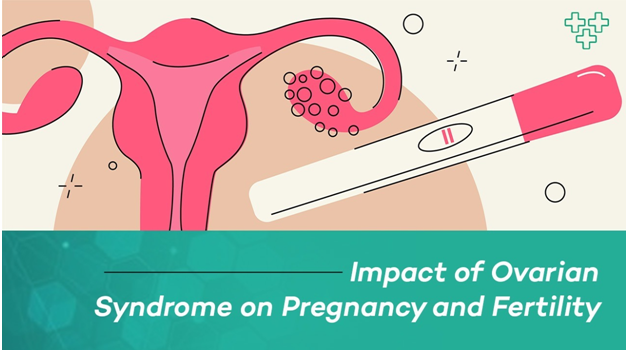Polycystic Ovarian Syndrome, also known as PCOS, is a hormonal condition in women. Women with PCOS struggle for pregnancy and when they get pregnant, the chances of complications are on the higher side. Although, with appropriate care and management of symptoms, many women with PCOS have given birth to healthy babies.
Let’s see in detail what PCOS is and how it affects pregnancy and fertility.
In a normal ovulation process, a mature follicle develops which is a cystic structure of about 18 to 28 mm in diameter. In case the woman doesn’t conceive, she is expected to get her period in 14 days of time.
In PCOS, the ovaries contain many small antral follicles containing eggs but they do not develop properly, so there’s no ovulation. This leads to irregular menstrual cycles.
The reason for PCOS lies in a condition where ovaries produce higher levels of male hormones which interfere with ovulation and menstrual cycle. Identified symptoms of PCOS are:
- Cysts in ovaries
- Infertility
- Weight Gain
- Excessive facial & body hair
- Balding head
- Irregular periods
With professional medical help, these symptoms can be managed. When you visit for an appointment your doctor will advise you to take a blood test (to check for male hormones), they will also suggest ultrasound scans to detect cysts in the ovaries.
Once the diagnosis confirms PCOS, doctors will suggest you make appropriate changes in your lifestyle to overcome it. These changes are:
- Maintain healthy weight
- Regular exercise
- Healthy and timely eating
- Appropriate sleep
- Monitoring ovulation and time intercourse around it
In case you are still unable to conceive, doctors will suggest fertility medications. If medications don’t work, they might suggest removing a small amount of tissue that is overproducing male hormone or IVF to conceive successfully.
Fortunately, these lifestyle changes and treatments give positive results and many women do get pregnant.
Once, you are pregnant, there is a high risk of miscarriage, blood pressure problem, gestational bleeding and premature birth due to complications of PCOS.
These risks can be subsided by regular monitoring of PCOS symptoms and taking a little bit extra care during pregnancy.
If you have PCOS and you want to feel the preciousness of motherhood, come to medical experts at United Medicity.

1 Comment
Nilu yadav August 20, 2023 at 12:37 pm
hello friends